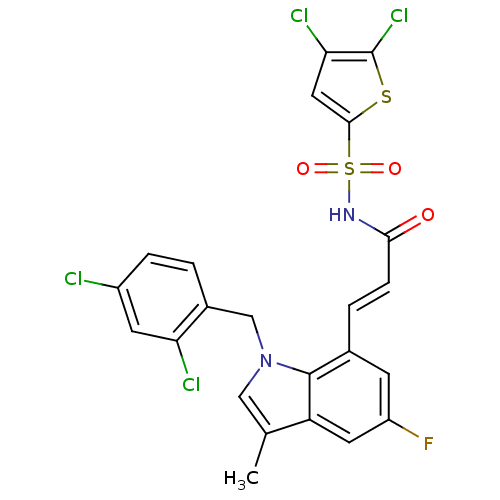 Found 5 Enz. Inhib. hit(s) with Target = 'Prostaglandin E2 receptor EP3 subtype' and Ligand = 'BDBM50303662'
Found 5 Enz. Inhib. hit(s) with Target = 'Prostaglandin E2 receptor EP3 subtype' and Ligand = 'BDBM50303662' Affinity DataIC50: 4.60nMAssay Description:Displacement of [3H]PGE2 from human EP3 receptor after 1 hr by liquid scintillation countingMore data for this Ligand-Target Pair
Affinity DataIC50: 4.60nMAssay Description:Displacement of [3H]PGE2 from human EP3 receptor after 60 mins repeated washing by liquid scintillation countingMore data for this Ligand-Target Pair
Affinity DataIC50: 4.60nMAssay Description:Displacement of [3H]PGE2 from human EP3 receptorMore data for this Ligand-Target Pair
Affinity DataIC50: 6nMAssay Description:Displacement of [3H]PGE2 from human EP3 receptor after 1 hr by liquid scintillation counting in presence of 10% human serumMore data for this Ligand-Target Pair
Affinity DataIC50: 11nMAssay Description:Displacement of [3H]PGE2 from mouse EP3 receptor after 1 hr by liquid scintillation countingMore data for this Ligand-Target Pair
